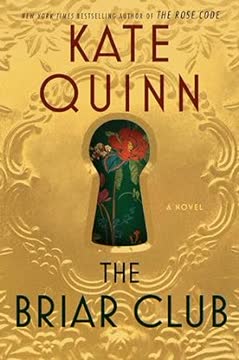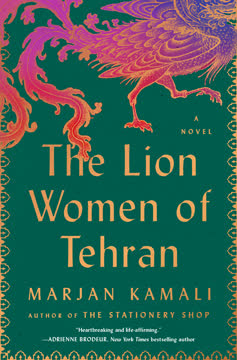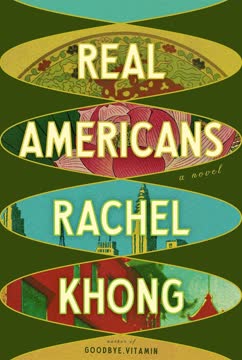Plot Summary
Ajay's Arrest Shocks Family
The Shah family, recent immigrants to Southern California, is thrown into turmoil when twelve-year-old Ajay is arrested near an airport. This shocking event exposes the family's vulnerabilities and the precariousness of their immigrant status. As Priya and Ashok rush to the jail, they are engulfed by disbelief and fear, struggling to comprehend how their son could be involved in such a situation. Ajay's arrest becomes a catalyst for the family to examine their place in a society that views them with suspicion, despite their efforts to assimilate and succeed.
Priya's Struggle with Guilt
Overwhelmed by guilt and fear, Priya, Ajay's mother, navigates the aftermath of her son's arrest. Her mind is filled with questions about what she could have done differently to protect him. Memories of her own struggles as an immigrant resurface, highlighting the sacrifices she and Ashok made for their children. Priya's internal conflict is compounded by the pressure to maintain a facade of normalcy for her daughters, Deepa and Maya, while dealing with the legal and emotional fallout of Ajay's situation.
Deepa's Secret Protest
Deepa, Ajay's older sister, is secretly involved in a protest at the US-Mexico border, advocating for immigrant rights. Her activism creates tension with her parents, who prioritize safety and stability over political engagement. Deepa's decision to attend the protest without informing her family adds complexity to the family's crisis. As she grapples with her role in the unfolding events, Deepa must confront her own beliefs and the impact of her actions on her family.
Maya's New World
Maya, the youngest daughter, adjusts to life in a new, affluent neighborhood and school. Her experiences highlight the cultural and social challenges the family faces as they strive to fit into a predominantly white community. Maya's interactions with her peers and her desire to belong underscore the family's ongoing struggle to balance their cultural identity with the pressures of assimilation. Her journey reflects the broader theme of identity and belonging that permeates the family's story.
Ashok's American Dream
Ashok, the patriarch, is driven by the desire to achieve the American Dream for his family. His journey from India to the United States is marked by ambition and hard work, but Ajay's arrest forces him to confront the limitations and prejudices that still exist. Ashok's interactions with his friend Vikram and the legal system reveal the complexities of navigating success as an immigrant. His determination to protect his family and secure their future is tested as he grapples with the realities of their situation.
Community and Prejudice
The Shah family's ordeal brings to light the dual nature of their community—supportive yet fraught with underlying prejudice. As they seek help from friends and neighbors, they encounter both empathy and suspicion. The family's interactions with law enforcement and the legal system expose the biases that persist in society, challenging their belief in the fairness of the American Dream. This chapter explores the tension between community support and the prejudice that immigrants often face.
Family Under Pressure
The Shah family is under immense pressure as they navigate the legal and emotional challenges of Ajay's arrest. Each member of the family must confront their own fears and insecurities while trying to support one another. The situation forces them to reevaluate their priorities and the sacrifices they have made for a better life. As they come together to face the crisis, the strength of their family bonds is tested, revealing both vulnerabilities and resilience.
Deepa's Awakening to Reality
Deepa's conversation with Paco reveals the stark reality of racial prejudice and the illusion of safety her family believed in. Her parents' belief in being "good immigrants" is shattered by Ajay's arrest, which exposes the vulnerability of their status. Deepa's activism and her relationship with Paco highlight the generational and cultural tensions within the family. As she grapples with her brother's trauma and her own role in the family's crisis, Deepa begins to understand the broader implications of their immigrant experience and the systemic biases they face.
Ajay's Legal Ordeal Unfolds
Ajay's arrest leads to a grueling legal process, with lawyer Jonathan Stern preparing him for questioning. The family's interactions with law enforcement reveal the biases and challenges faced by immigrants. Ajay's trauma is evident as he struggles with the aftermath of his arrest, both physically and emotionally. The family's efforts to protect him highlight the complexities of navigating a legal system that is often biased against them. Ajay's ordeal becomes a catalyst for the family to confront their fears and insecurities, as they fight to clear his name and secure his future.
Family Faces Community Scrutiny
The Shah family faces scrutiny from their community, with neighbors and media questioning their integrity. The family's interactions with law enforcement and the legal system expose the biases that persist in society. As they seek support from friends and neighbors, they encounter both empathy and suspicion. The family's ordeal becomes a reflection of the broader immigrant experience, highlighting the tension between community support and prejudice. The Shahs must navigate these challenges while maintaining their dignity and fighting for justice.
Maya's Struggle for Acceptance
Maya's desire to fit into her new environment leads her to make questionable choices, including shoplifting and sending compromising photos. Her struggle for acceptance highlights the pressures of assimilation and the desire to belong in a predominantly white community. Maya's experiences reflect the broader theme of identity and belonging, as she grapples with the expectations of her peers and the cultural challenges faced by her family. Her journey underscores the complexities of growing up as an immigrant in a multicultural world.
A New Beginning for Shahs
The Shah family decides to move back to their old neighborhood, seeking a sense of community and belonging. Their decision reflects the broader theme of resilience and the complexities of family dynamics in a multicultural world. As they navigate the challenges of starting over, the Shahs find strength in their family bonds and the support of their friends. Their journey becomes a reflection of the immigrant experience, highlighting the importance of unity and support in overcoming adversity and finding a place to call home.
Characters
Ajay Shah
Ajay is a twelve-year-old boy whose arrest becomes the catalyst for the family's crisis. His innocence and vulnerability are highlighted as he navigates the frightening experience of being in police custody. Ajay's character represents the challenges faced by immigrant children who are caught between their cultural heritage and the expectations of their new environment. His ordeal forces the family to confront the harsh realities of their immigrant status.
Priya Shah
Priya is Ajay's mother, struggling with guilt and fear in the wake of her son's arrest. Her character embodies the sacrifices and challenges faced by immigrant parents who strive to provide a better life for their children. Priya's internal conflict and determination to protect her family highlight the emotional toll of their situation. Her journey reflects the broader theme of resilience and the complexities of motherhood in a foreign land.
Ashok Shah
Ashok is the patriarch of the Shah family, driven by the desire to achieve success and security for his family. His character represents the immigrant experience of striving for the American Dream while facing systemic challenges and prejudice. Ashok's interactions with friends and the legal system reveal the complexities of navigating success as an immigrant. His determination to protect his family is tested as he grapples with the realities of their situation.
Deepa Shah
Deepa is Ajay's older sister, whose secret involvement in a protest adds complexity to the family's crisis. Her character embodies the tension between cultural expectations and personal beliefs. Deepa's activism and desire for social justice challenge her family's priorities and highlight the generational divide in their approach to assimilation and identity. Her journey reflects the broader theme of identity and belonging.
Maya Shah
Maya is the youngest daughter, navigating the challenges of fitting into a new, affluent community. Her character represents the pressures of assimilation and the desire to belong in a predominantly white environment. Maya's experiences highlight the cultural and social challenges faced by immigrant families as they strive to balance their cultural identity with the expectations of their new surroundings.
Vikram Sharma
Vikram is a friend of Ashok's, representing the successful immigrant who has achieved the American Dream. His character provides a contrast to the Shah family's struggles, highlighting the complexities of success and the ongoing challenges faced by immigrants. Vikram's support and perspective offer insight into the broader immigrant experience and the tension between community support and prejudice.
Jonathan Stern
Jonathan is the lawyer representing the Shah family, guiding them through the legal challenges of Ajay's arrest. His character represents the complexities of the legal system and the importance of understanding the rules of the game. Jonathan's interactions with the family highlight the challenges of navigating a system that is often biased against immigrants, emphasizing the need for strategic thinking and resilience.
Jasmine Young
Jasmine's character embodies the fight for justice and the importance of solidarity among marginalized communities. Her interactions with Priya highlight the shared struggles of mothers seeking to protect their children in a biased society. Jasmine's journey reflects the broader theme of resilience and the complexities of navigating a multicultural world.
Plot Devices
Cultural Identity and Assimilation
The theme of cultural identity and assimilation is central to the Shah family's story. Each family member grapples with the tension between maintaining their cultural heritage and fitting into their new environment. This plot device highlights the challenges faced by immigrants as they navigate the expectations of their new society while preserving their cultural identity. The family's journey reflects the broader theme of identity and belonging in a multicultural world.
Prejudice and Systemic Bias
The Shah family's ordeal exposes the systemic biases and prejudices that persist in society. Their interactions with law enforcement, the legal system, and their community reveal the challenges faced by immigrants in a society that often views them with suspicion. This plot device underscores the complexities of navigating success and security as an immigrant, highlighting the need for resilience and strategic thinking in the face of prejudice.
Family Dynamics and Resilience
The Shah family's crisis tests their bonds and resilience as they navigate the legal and emotional challenges of Ajay's arrest. Each family member must confront their own fears and insecurities while trying to support one another. This plot device highlights the strength and vulnerability of family relationships, emphasizing the importance of unity and support in overcoming adversity. The family's journey reflects the broader theme of resilience and the complexities of family dynamics in a multicultural world.
Analysis
"A Great Country" by Shilpi Somaya Gowda delves into the multifaceted experiences of an immigrant family navigating the complexities of assimilation, identity, and systemic bias in America. Through the Shah family's journey, the novel explores the tension between cultural heritage and the desire to belong, highlighting the sacrifices and challenges faced by immigrants striving for the American Dream. The story underscores the resilience required to confront societal prejudices and the importance of family unity in overcoming adversity. Gowda's narrative offers a poignant reflection on the immigrant experience, emphasizing the need for empathy, understanding, and solidarity in a multicultural world.
Last updated:
FAQ
0. Synopsis & Basic Details
What is A Great Country about?
- Immigrant Family's Ordeal: A Great Country follows the Shah family, Indian immigrants who have achieved a version of the American Dream in affluent Southern California, until their twelve-year-old son, Ajay, is unexpectedly arrested by police near an airport. This event shatters their sense of security and forces them to confront the realities of prejudice and systemic bias.
- Unraveling Assumptions: The story delves into the individual struggles of each family member—Priya's guilt and protective instincts, Ashok's unwavering belief in assimilation, Deepa's burgeoning activism, and Maya's quest for belonging—as they navigate the legal system, community scrutiny, and their own internal conflicts.
- Quest for Justice: Ultimately, the novel explores the complexities of cultural identity, the elusive nature of the American Dream, and the search for justice and solidarity in a society grappling with issues of race, class, and belonging.
Why should I read A Great Country?
- Deep Emotional Resonance: Readers should engage with A Great Country for its profound emotional analysis of a family under duress, offering a raw and honest portrayal of parental fear, sibling dynamics, and the psychological toll of systemic injustice. The novel excels in depicting the internal lives of its characters, making their struggles deeply relatable.
- Timely Social Commentary: The book provides a crucial and timely exploration of themes in A Great Country such as racial profiling, the "model minority" myth, and the immigrant experience, prompting readers to reflect on societal biases and the true meaning of belonging in America. It challenges preconceived notions about safety and privilege.
- Masterful Character Development: Shilpi Somaya Gowda crafts complex, multi-layered characters whose motivations and relationships evolve significantly throughout the narrative, inviting readers to empathize with their individual journeys and the difficult choices they face. The nuanced portrayal of each Shah family member offers rich psychological depth.
What is the background of A Great Country?
- Post-9/11 America's Shadow: The novel is set against the backdrop of post-9/11 America, where heightened national security concerns and a climate of suspicion disproportionately affect communities of color, particularly those perceived as "other." This historical context directly influences the police's reaction to Ajay and the family's subsequent ordeal.
- Southern California's Diverse Landscape: The story contrasts the aspirational, affluent enclave of Pacific Hills with the more diverse, working-class neighborhoods of Irvine and the bustling US-Mexico border, highlighting the stark socioeconomic and cultural divides within Southern California. This geographical contrast underscores the Shahs' journey of assimilation and their eventual re-evaluation of "home."
- Caste System's Lingering Echoes: The narrative subtly introduces the enduring impact of India's caste system, even in America, through characters like Vikram Sharma and the BioFlex discrimination lawsuit. This cultural context reveals how ancient biases can manifest in new environments, complicating the immigrant experience and challenging the notion of a truly level playing field.
What are the most memorable quotes in A Great Country?
- "It's different until it's not." (Ricky, Chapter 1): This powerful line, spoken by Ricky during a dinner party discussion about racial targeting, foreshadows the Shah family's own vulnerability and the eventual shattering of their belief that their success and "model minority" status would protect them from prejudice. It encapsulates the precariousness of their position.
- "You're off fighting for the rights of strangers, and you don't even know when your own siblings are at risk?" (Ashok, Chapter 32): This quote from Ashok to Deepa highlights the central tension between individual activism and familial responsibility, revealing the generational divide in how immigrants perceive their obligations and the scope of their empathy. It underscores Ashok's initial narrow focus on his immediate family's safety.
- "The truth is, it never was." (Archie, Chapter 44): Archie's blunt response to Priya's lament that "The world doesn't feel safe for him anymore" (referring to Ajay) is a stark and poignant realization that shatters Priya's naive belief in a safe, assimilated existence. This quote marks a pivotal moment of awakening for Priya, acknowledging the inherent dangers faced by marginalized communities.
What writing style, narrative choices, and literary techniques does Shilpi Somaya Gowda use?
- Shifting Perspectives & Deep POV: Gowda employs a rotating third-person limited point of view, allowing readers intimate access to the thoughts and feelings of Priya, Ashok, Deepa, and Maya. This narrative choice provides a comprehensive psychological analysis of each character's internal struggles and their differing interpretations of the same events, enriching the emotional depth of A Great Country analysis.
- Juxtaposition and Contrast: The author frequently uses juxtaposition to highlight thematic tensions, such as the Shahs' dinner party normalcy against Ajay's arrest, or the opulence of Pacific Hills against the grit of the border protest. This technique underscores the stark realities of class, race, and privilege, making the novel's social commentary more impactful.
- Symbolism and Motif Tracking: Gowda subtly integrates symbolism, like the recurring motif of the "American flag" (Chapter 2, 33, 45) representing both aspiration and contested identity, or Ajay's "drone" (Chapter 17, 18, 43) symbolizing his innocent curiosity versus perceived threat. These elements add layers of meaning, inviting deeper interpretation of the novel's themes in A Great Country.
1. Hidden Details & Subtle Connections
What are some minor details that add significant meaning?
- Jail Lobby's ATMs: The presence of two ATM machines in the Orange County Jail lobby (Chapter 6) is a subtle but potent detail, highlighting the commodification of justice and the financial burden placed on families seeking to bail out loved ones. It underscores how the system is designed to extract money, even from those in distress.
- Priya's Hair Band: Priya's habit of idly working at the elastic hair band on her wrist (Chapter 5), even under gold bangles, symbolizes her pragmatic nature and her constant, almost unconscious, effort to maintain control and order amidst chaos. It's a small gesture reflecting her deep-seated need for stability and preparedness.
- Architect's Ceramic Plate: The architect neighbor bringing blondies on a ceramic plate from her own cupboard (Chapter 34), rather than a disposable one, signifies a genuine gesture of community and hope for future, reciprocal interactions. This small detail contrasts sharply with the earlier suspicion and the "GO BACK HOME" brick, offering a glimmer of human connection.
What are some subtle foreshadowing and callbacks?
- Vikram's "Model Minority" Warning: Vikram's early comment, "When a community starts becoming successful, that is when the backlash starts. Nobody cared about opium in San Francisco until the Chinese started doing well. No one willingly gives up their place of privilege for someone new" (Chapter 1), subtly foreshadows the Shahs' own experience of being targeted despite their assimilation and success. It hints at the fragility of their perceived acceptance.
- Ashok's 9/11 Border Experience: Ashok's recollection of being detained at LAX after 9/11, having his Sanskrit poetry book confiscated, and being told to "lose his accent" (Chapter 6) is a powerful callback that explains his deep-seated vulnerability and fear of authority. This past trauma informs his compliant behavior and his desperate desire for his children to be seen as "American."
- Deepa's Past India Punishments: Deepa's two previous trips to India, one as a baby and one as a teenager for a belly button piercing (Chapter 8), foreshadow her parents' tendency to "send her away" when she doesn't conform to their expectations. This history explains her deep-seated resentment and feeling that her parents' success is "divorced from her."
What are some unexpected character connections?
- Deepa and Paco's Shared Trauma: Deepa's friendship with Paco, initially based on shared academic interests, deepens through their mutual understanding of systemic injustice and the burdens placed on immigrant children. Their connection is unexpectedly solidified by the revelation that Baker Development, the company of Maya's affluent friend, was responsible for Paco's father's death (Chapter 39), linking their personal struggles to a broader narrative of corporate power and exploitation.
- Maya's Secret Life and Deepa's Protection: Maya's hidden struggles with shoplifting and sending compromising photos to Chase Baker (Chapter 41) reveal a surprising vulnerability beneath her "perfect child" facade. Deepa's decision to lie to her parents to protect Maya (Chapter 35) creates an unexpected bond and shifts their sisterly dynamic, highlighting Deepa's loyalty and empathy despite their differences.
- Officer Diaz's Internal Conflict: Officer Diaz, initially part of Ajay's arrest, develops an unexpected empathy for the boy, recognizing his neurodiversity and challenging his partner O'Reilly's biases (Chapter 16, 43). His subtle actions, like calling Priya and later advocating for Ajay, reveal a nuanced perspective within law enforcement, suggesting that not all officers are monolithic in their views.
Who are the most significant supporting characters?
- Archie Dhillon: The Unwavering Confidante: Archie serves as Priya's steadfast best friend and emotional anchor, offering unconditional support, practical help (food, advice), and a voice of clear-eyed wisdom. Her psychological training and deep understanding of Priya's past trauma (Chapter 21) make her an invaluable source of strength and perspective, embodying true friendship and community in A Great Country analysis.
- Paco: Deepa's Moral Compass and Catalyst: Paco is Deepa's closest friend and a crucial character in shaping her worldview, particularly regarding social justice and the realities of immigrant life. His personal story of loss and his family's struggle against Baker Development (Chapter 2, 39) directly fuels Deepa's activism and forces the Shah family to confront uncomfortable truths about privilege and exploitation.
- Jonathan Stern & Helen Wu: The Nuanced Legal Guides: Jonathan Stern, initially a family friend's lawyer, and his partner Helen Wu, a seventh-generation Chinese-American with national security expertise (Chapter 38), represent the complexities of navigating the American legal system. Their advice, from managing media to understanding the nuances of racial and ancestral discrimination, highlights the strategic maneuvering required to protect the Shahs, while also embodying different facets of the immigrant experience.
2. Psychological, Emotional, & Relational Analysis
What are some unspoken motivations of the characters?
- Maya's Drive for Acceptance: Maya's unspoken motivation is a desperate desire for social acceptance and to fit into the affluent, predominantly white world of Pacific Hills High. Her actions, like faking backpack damage (Chapter 3) and shoplifting (Chapter 35), stem from a deep-seated insecurity and a need to project an image of belonging, even at personal risk.
- Ashok's Fear of Regression: Ashok's relentless pursuit of the American Dream and his resistance to acknowledging Ajay's neurodiversity are driven by an unspoken fear of regression—of falling back into the "lower" status he experienced in India and as a new immigrant. He believes that any perceived flaw or deviation from the "model minority" ideal could jeopardize everything he's worked for (Chapter 23, 37).
- Priya's Burden of Protection: Priya's primary unspoken motivation is an overwhelming, almost primal, need to protect her children from the harsh realities she experienced, both from her uncle's abuse (Chapter 21) and the early struggles of immigration. This deep-seated protectiveness often manifests as a desire for control and a reluctance to confront uncomfortable truths, until forced by crisis.
What psychological complexities do the characters exhibit?
- Ajay's Neurodiversity and Sensory Overload: Ajay exhibits psychological complexities consistent with being on the autism spectrum, characterized by intense focus on specific interests (robotics, flight patterns), difficulty with social interactions, and sensory sensitivities (buzzing clippers, loud sounds, uncomfortable clothing) (Chapter 17, 26, 43). His inability to process social cues and express himself conventionally leads to misunderstandings with authority figures, making him vulnerable.
- Priya's Trauma and Assimilation Conflict: Priya's past trauma of sexual abuse by her uncle (Chapter 21) profoundly shapes her, leading to a lifelong pattern of emotional buffering and a desperate desire for a "safe" life. This personal history intertwines with her immigrant experience, creating a complex internal conflict between her desire for assimilation and her growing realization that "safety" is an illusion for people of color in America.
- Deepa's Righteous Indignation and Guilt: Deepa's psychological complexity lies in her passionate pursuit of social justice, which often clashes with her family's more pragmatic approach to assimilation. Her "fire" (Chapter 44) is fueled by a righteous indignation against systemic inequalities, but she also grapples with guilt over her actions' impact on her family (Chapter 25, 35), particularly her role in Ajay's initial abandonment.
What are the major emotional turning points?
- Ajay's Injured Appearance at Jail: The moment Priya and Ashok see Ajay emerge from the jail, bruised and disoriented (Chapter 18), is a major emotional turning point. It shatters their intellectual understanding of the situation, transforming it into a visceral, undeniable reality of their son's suffering and the police's brutality, igniting Priya's rage and Ashok's quiet despair.
- The Brick Through the Window: The "GO BACK HOME" brick shattering the Shahs' living room window (Chapter 36) is a critical emotional turning point, marking the direct intrusion of hatred and prejudice into their "safe" Pacific Hills home. This act of violence forces the family to confront the personal threat they face, leading to a re-evaluation of their community and their place in America.
- Priya's Public Statement: Priya's decision to make a public statement at the courthouse (Chapter 45), openly acknowledging her shame, her son's differences, and the systemic biases they faced, represents a profound emotional and psychological shift. It signifies her moving beyond personal shame and fear to embrace solidarity and advocate for broader justice, marking a new phase in her emotional journey.
How do relationship dynamics evolve?
- Priya and Ashok's United Front: The crisis initially exposes cracks in Priya and Ashok's relationship, particularly regarding their parenting choices and Ashok's reliance on Vikram. However, the escalating threats and shared fear for Ajay ultimately forge a stronger, more unified front between them (Chapter 38), as they prioritize their children's safety above all else, reaffirming their foundational partnership.
- Deepa and Maya's Sisterly Reconciliation: The sisters' relationship, initially strained by Maya's desire for assimilation and Deepa's judgment, undergoes a significant evolution. Deepa's protective lie for Maya (Chapter 35) and Maya's later confession about Chase (Chapter 43) lead to a deeper understanding and a renewed sense of sisterly solidarity, transforming their dynamic from conflict to mutual support.
- Shahs' Re-evaluation of Friendships: The Shahs' relationships with their friends evolve dramatically: Vikram Sharma's distance and the BioFlex scandal (Chapter 28, 37) reveal the conditional nature of his support, while Archie and Ricky Dhillon's unwavering presence and practical help (Chapter 21, 30, 36) solidify their bond as true, reliable family. This re-evaluation highlights the importance of authentic connection over superficial status.
4. Interpretation & Debate
Which parts of the story remain ambiguous or open-ended?
- Ajay's Long-Term Psychological Recovery: While Ajay's charges are dropped and he begins therapy (Chapter 44), the full extent of his psychological recovery from the trauma of arrest and detention remains ambiguous. The novel leaves open how he will navigate a world that doesn't always understand him, and whether his neurodiversity will continue to be a source of vulnerability or strength.
- The Future of Deepa's Activism: Deepa's commitment to social justice is firmly established, culminating in her desire to connect with Jasmine Young's mother (Chapter 45). However, the specific trajectory and impact of her future activism, particularly in balancing it with her family's needs and her own aspirations, remain open-ended, inviting readers to consider the ongoing challenges of advocating for change.
- The "American Dream" Redefined: The novel concludes with the Shahs moving back
Review Summary
A Great Country received mostly positive reviews, praised for its thought-provoking exploration of immigration, racism, and the American dream. Readers appreciated the nuanced portrayal of an Indian-American family facing injustice and cultural conflicts. Many found it emotional, engaging, and relevant to current social issues. Some critics felt it relied on clichés or oversimplified complex topics. The book was frequently recommended for book clubs and compared to works like "Little Fires Everywhere." Overall, reviewers found it a compelling and timely read that sparked important discussions.
Similar Books
Download PDF
Download EPUB
.epub digital book format is ideal for reading ebooks on phones, tablets, and e-readers.














